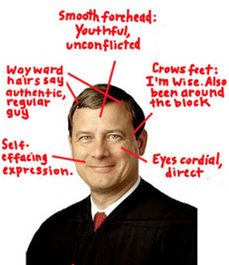By Carl Schreiter
“You never get a second chance to make a good first impression”. This isn’t news to you, nor is it just colloquial wisdom but backed up by years of accumulated and rigorous research. And you better be quick because you only have seven seconds before a stranger has formed an opinion of you. That’s according to Roger Ailes, a world renowned media strategist, from whom both Ronald Reagan and Rudy Giuliani sought career defining advice. (Gordon, too late now I’m afraid.) But hey, who am I to pass judgment as I am now under considerable pressure to make my own case. So here it is: Seven top tips on how to make your first impression highly positive.
Put the other person, not yourself in the centre: “I”, “me” and “myself” driven individuals are turn-offs. Unless you’re an astronaut, polar explorer or have made it on to the rich list, chances are your life story doesn’t lend itself to oral transmission. Show others that you are others-centred. Get them to open up by asking unintrusive open questions, allowing them to position themselves and feel important. “What’s it like working in such a great location”? “I understand you guys just opened a branch office in Oslo, what are your plans?” “Why is this project important to you?” Remember, a first impression is less about you, and more about making the person you meet feel important.
Demonstrate good listening skills: Give affirmative verbal cues like “Interesting”, “I see” “Hmm” and so on. Non-verbally, you need to maintain steady eye contact and avoid letting your gaze wander as this is a tell-tell sign that, despite your physical presence, suggests that you have now abandoned the conversation in favour of your own thoughts or other, more interesting sights.
Smile: and try not to look bored or tired, even if you are. This gives the impression that you’re not enthusiastic. Making a good impression even when fatigued is a true sign of seasoned professionalism.
Humour is a serious matter: and shouldn’t be taken lightly. Though a witty remark, prompted by the occasion may help break the ice, you should avoid jokes as you have no idea about the other person’s sensitivities. Save your favourite knee-slappers for later, once you have forged a solid rapport with the other person.
Clothes make the man (and the woman): Arguably the very first factor in first impressions is the way you dress. You have to look the part. Some may argue that you should dress for the job you want not the job you’ve got. Whilst it’s commonly a subconscious appraisal, it is the single most noticeable thing about a person. Standards for appropriate” attire keep changing all the time and vogues occur with the same speed with which they disappear. The good news is that style is never out of fashion.
Avoid the need to be right: By challenging the views of someone you’ve just met you run the risk of destroying your chances of building rapport. You are only really in a position to challenge someone’s statement or viewpoint once you have established your own credibility.
Manage and monitor your speaking style: Listeners judge us by the words we use and how we say them. Don’t mumble, speak clearly, articulate and avoid jargon and expressions that are abstract or elitist. Modulate your voice to avoid dullness and monotony. Display animation in facial expressions and refrain from using contrived body language. Natural gestures will do, provided that whatever you’re saying is conveyed with true conviction and authenticity.
In short, first impressions are important because they last. Whilst a first bad impression is very difficult to reverse or undo, a first good impression will give you leverage to prove the content of your character and articulate the value you bring to the table.
Remember that making a good impression isn’t synonymous with impressing people. In fact, people will get annoyed if you try too hard and the phoniness will inevitably shine through. You don’t have to go out of your way to please your new acquaintances. Just be yourself at your best.



